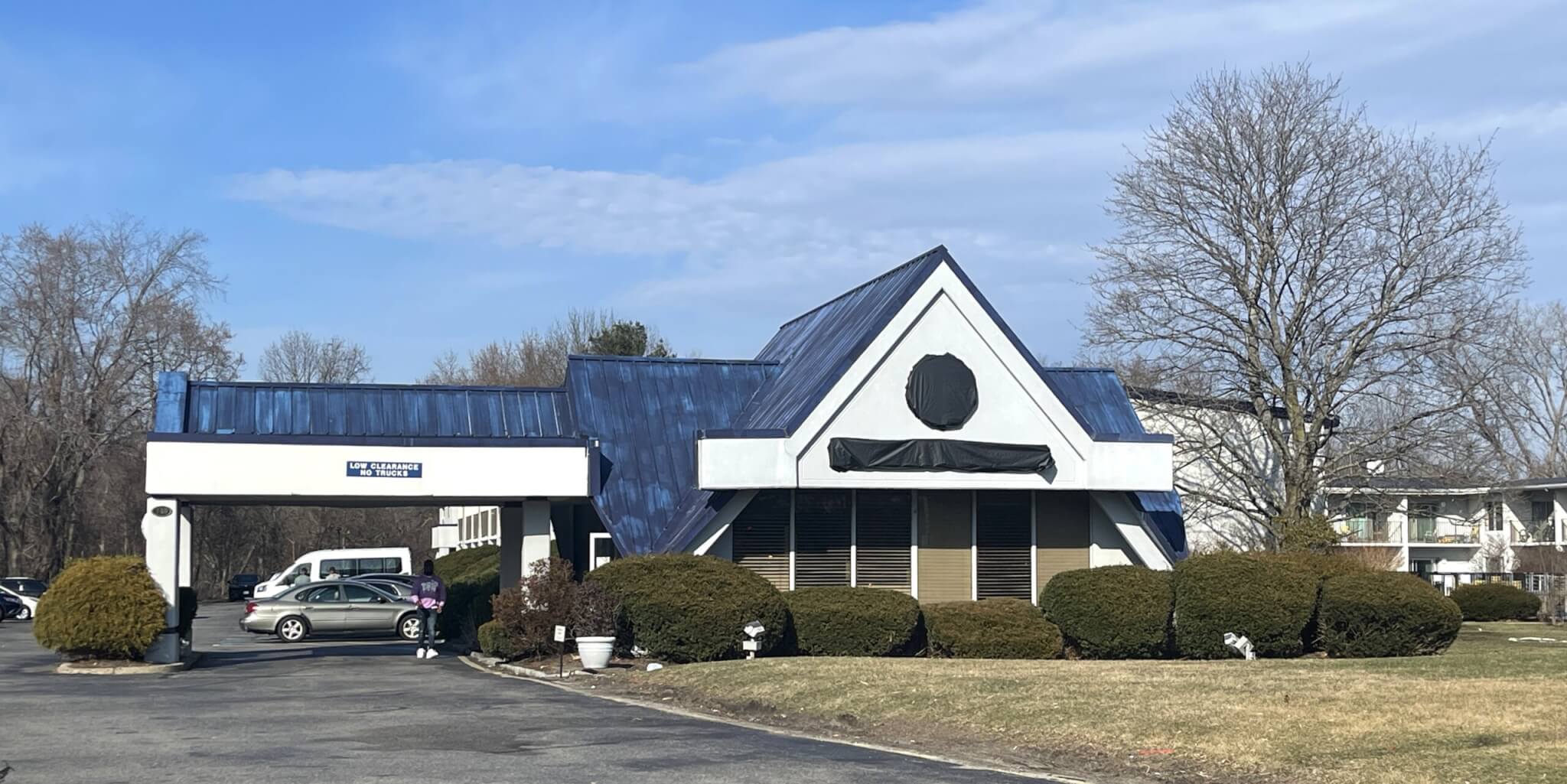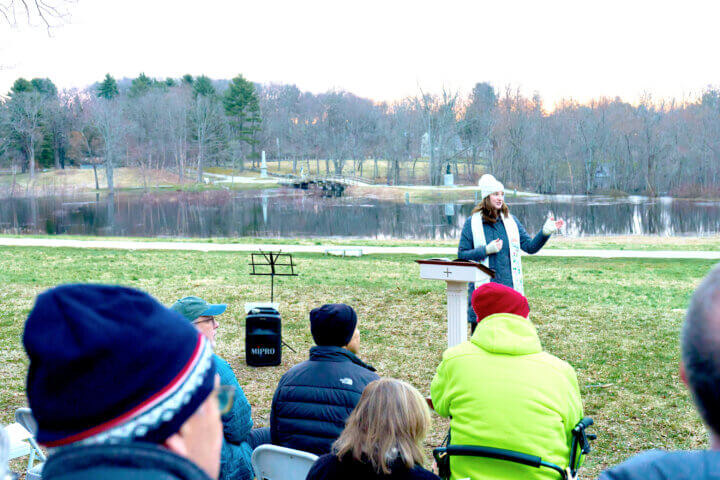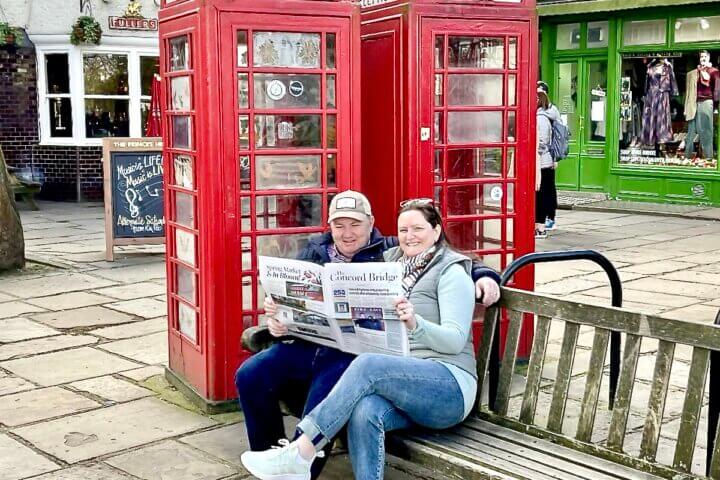By Sammy Grobman — Boston University Statehouse Program
The influx of migrants into Massachusetts on top of an existing housing crisis has generated controversy and headlines across the state. Meanwhile, Concord has quietly opened its arms, converting a motel into an emergency shelter.
Last year, the Best Western on Elm Street was converted into a family shelter, the first of its kind in the town. It accommodates families from Concord, the surrounding area, and migrants as an overflow from an emergency shelter in nearby Devens.
Since then, the town has been overwhelmingly supportive, said Rep. Simon Cataldo (D-Concord).
“There’s been a tremendous effort by all of the relevant stakeholders in town to rise to the occasion amidst what’s a very challenging situation,” he said.
The emergency shelter is run by Making Opportunity Count, a central Massachusetts social services organization whose primary goal is to support the families they house and make sure they have everything they need to succeed.
Care and compassion
“These families arrive, they need support, they need compassion, they really need some love and care,” said Colby O’Brien, Making Opportunity Count’s vice president of programs.
“About 60% of families at Concord are new arrivals, migrants, and refugees. The other 40% are Massachusetts residents that have become homeless; [they] could be your neighbor,” said O’Brien.
The migrant families have traveled many months to present themselves at the border and gain asylum, and they enter the system with nothing, O’Brien noted.
“If they’re a new arrival, they’re likely coming in with the clothes on their backs, the shoes on their feet, and they’re starting from ground zero,” said O’Brien.
Making Opportunity Count works with their residents to prepare them for life outside of the shelter. Staff help with work permits, getting a license, helping to apply for Department of Transitional Assistance and with supplemental food programs like SNAP, WIC, and other benefits, said O’Brien.
“We never want to just place a family to get them out of the shelter,” said O’Brien. “The goal is to really prepare them.”
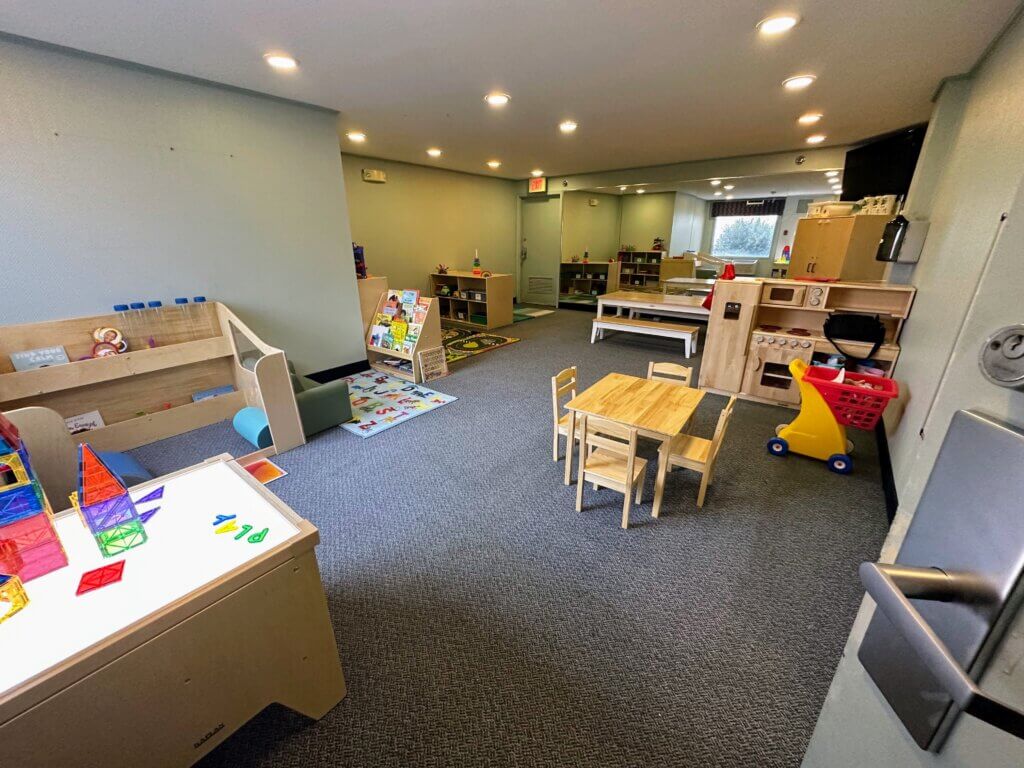
The shelter also focuses heavily on supporting its child residents, partnering with Horizons for Homeless Children, an organization that runs early childhood programs.
Play is vital for childhood development. Both migrant children and homeless children experience trauma which can cause major developmental issues.
Play is something Horizons takes very seriously.
“Many of these children have been through tremendous amounts of trauma and dislocation. Dislocation for a child is stress and trauma,” said Kate Barrand, president and CEO of Horizons for Homeless Children.
Horizons has partnered with many shelters to create play spaces for pre-kindergarten-aged children. In the Concord shelter, two rooms, one the former hotel’s gym, were converted into playrooms — one for infants, the other for ages 2 to 5.
“Everything in this child’s life is completely out of their control,” Barrand said, and the programs aim to help restore a sense of self and agency.

Photo courtesy of Horizons for Homeless Children
Horizons also works with local early intervention providers to help the children work through trauma and other developmental delays they might be experiencing, said Barrand.
“You see children working through the issues that they’ve been confronted with, but that’s the power and the beauty of play; it allows us a safe space to do that work,” said Barrand.
Local school officials have also worked to support school-age children and younger students, preparing them for kindergarten.
“Most of the families in the Concord shelter are very young with young kids, so we have worked to try to address some of the preschool needs,” said Dr. Laurie Hunter, superintendent of Concord Public Schools and the Concord-Carlisle Regional School District.
Hunter said while the district receives a state subsidy of $104 per child per day for K-12 students who enroll in Concord schools — funds that cover ELL, bilingual classroom assistants, and a family coordinator — “our great fiscal need is in preschool since the state is not subsidizing that at all.”
Transportation costs have also been a matter for discussion, she said.
“Fiscally, our initial challenge was the cost to transport students to their home [district] schools if they had been enrolled in a Massachusetts school before being placed here. There is 100% subsidy, so it really was a timing issue,” Hunter said.
“This fall, we were invited into a pilot program to receive the reimbursement earlier than the usual year’s lag time. That will help with cash flow and should make it doable going forward without great impact.”
Hiring parents helps kids
The school district has also helped migrant parents with English language services to become more employable and hired parents to work in the schools as custodial and support staff for children in classrooms, said Hunter.
“Language is the biggest piece for us to work through,” said Hunter. Hiring parents has “been a really big asset because they can speak to their children whose first languages are Spanish or Haitian Creole.”
As far as increasing school diversity, “It really is benefiting everyone to have a bigger range of demographic,” said Hunter.
“We’re trying to learn their language, they’re trying to learn ours, we’re making our way through it, but overall, it’s been really successful.”
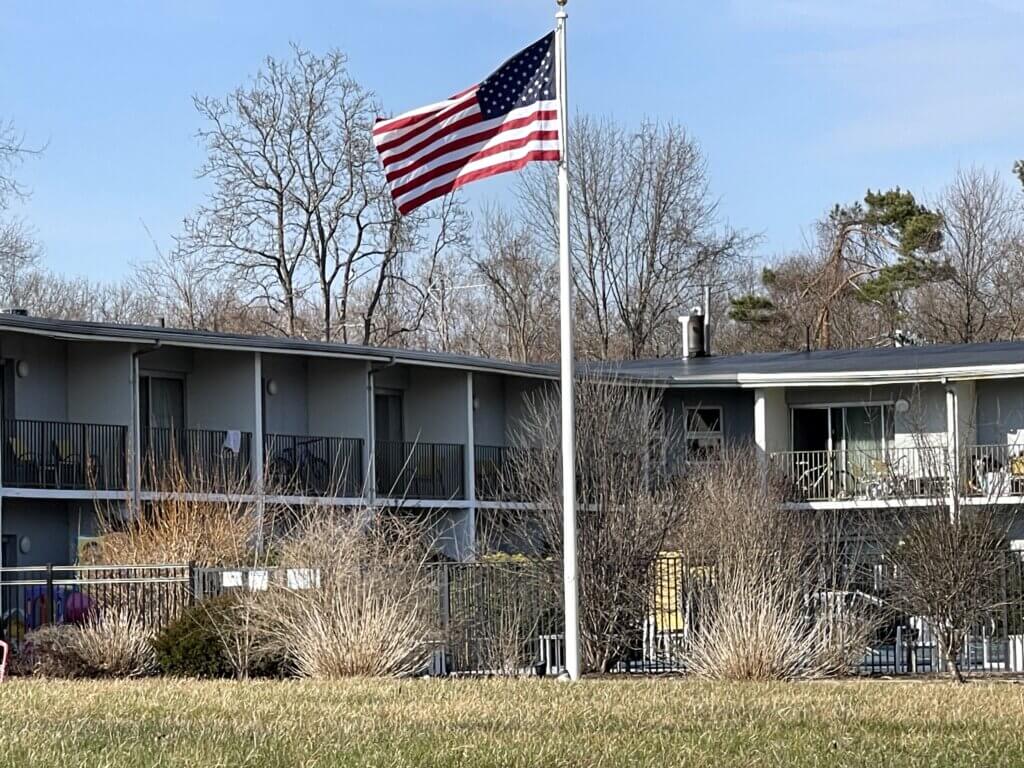
Other local organizations have also stepped up to support the new community members, including the Concord Recreation Department, which has funded camperships for children at the shelter from K-8 last summer and plans to do the same this summer, said Hunter.
Concord Carlisle Community Chest has also worked to organize donation drives and other ongoing efforts, Cataldo said.
Overall, said Select Board Chair Henry Dane, the establishment of the emergency shelter has “in many ways [been] a positive experience in terms of bringing forth a positive and humanitarian response to a challenge.
“Like rescuing a drowning child from a pond, it is not how you would have chosen to spend your afternoon, but your spirit has grown by the act,” he said.
At the same time, Dane said, “What we have seen recently is that the state has little hesitancy to impose burdens, not only in terms of costs but also in mandates on its municipalities.”
He said the arrival of the families at the Best Western “was not something we chose, were consulted on or expected. It just happened, and we responded as best we could, and everyone is the better for it.”
The future is unclear for emergency shelters like the one in Concord based on a House-passed fiscal 2024 supplemental budget that proposes to lower caps on shelter stays, the Concord.
Nevertheless, community support is still strong.
“They’ve been a wonderful model for what a community can do when it welcomes a group of new folks,” said Barrand.
Celeste Katz Marston contributed reporting.


